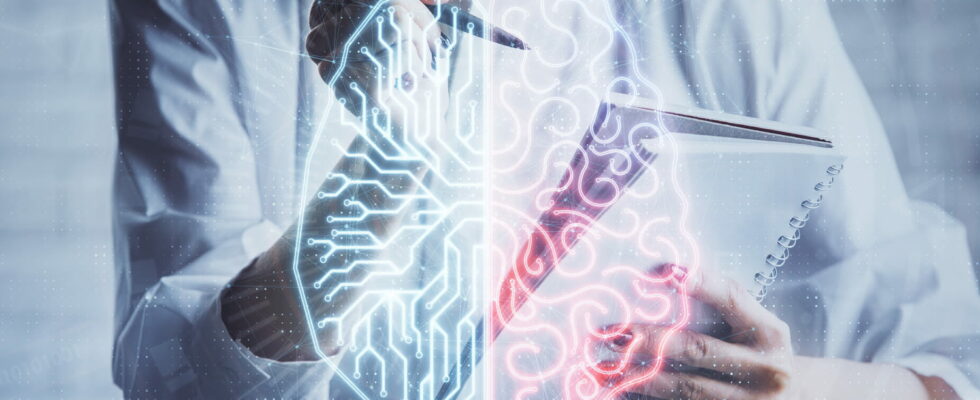Constantly evolving during childhood and adolescence, the brain evolves little in adulthood, except during a key period when men lose up to 1% of gray matter!
The subject of many studies, the human brain weighs about 400 grams at birth. Its size doubles during the first year and around the age of one, a child’s brain already reaches 2/3 the size of an adult brain. Between 2 and 3 years, it represents approximately 80% of that of an adult, but it is twice as active. It then takes about fifteen years for the brain to reach its adult size. Before the transition to the 3rd age, it then remains the same size during adulthood or almost!
Scientists had already noticed that the brains of expectant mothers lose gray matter during pregnancy. But they are not the only ones! Men are also affected when they become fathers. A study A study conducted by Darby Saxbe, a professor of psychology at the University of Southern California and published last April, revealed that men’s brains shrink when they become fathers: they lose 1% of their gray matter at this time of their life, but less significantly than women.
This decline in gray matter is not, however, associated with a loss of brain function or cognitive decline, insist its authors. The brain would in fact change to adapt to parenthood: according to the researchers, neural connections in the brain would disappear to make it more efficient. More empathetic and more vigilant, young fathers would then have an easier time detecting problems related to their child and resolving them.
Even more notable changes were seen in fathers who were very involved in raising their children or who worried a lot about them. However, these changes were not always positive according to the authors of the study. They discovered that fathers who lost the most gray matter were also more likely to show anxiety, develop depression or have poor quality sleep.
But the authors of the study are keen to moderate their remarks. This is a preliminary study of small samples of parents (…) We really need to expand studies of the parental brain to better understand its plasticity during this understudied stage of life” Darby Saxbe told the HuffPost. These changes are not the only ones when men become fathers. Thus, those who are the most invested see their testosterone levels decrease and their prolactin levels, a hormone involved in the production of milk, and oxytocin, called the attachment hormone, increase!
